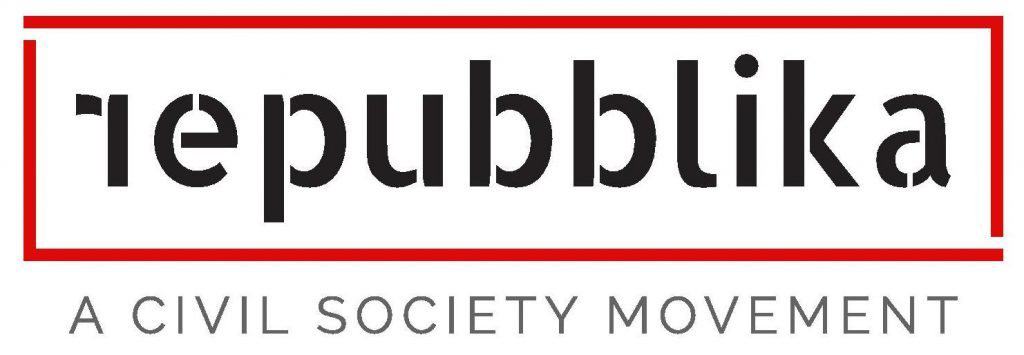Statement by Repubblika:

Repubblika has submitted written recommendations to the President of Malta and the Steering Committee on Constitutional Reform on the process that should be adopted when considering and approving Constitutional changes.
The recommendations include brief references to case studies of successful and failed constitutional initiatives in other countries that provide lessons that should inform the design of the process for Malta’s reform initiative.
The desirability of Constitutional reform is not in doubt. However, reforms that are top-down, controlled by politicians, conducted by horse-trading between political parties behind closed doors, and introduced without the inclusion of citizens or by plebiscite after populist campaigns, concentrate power in the hands of the executive rather than enhance the workings of democracy.
On the other hand, a citizen-led reform that is inclusive and participatory has the potential of renewing Malta’s democracy and leaving a legacy of a vibrant institutional framework that can protect the rights and interests of present and future generations and our built and natural environment.
We felt the need of drawing up these recommendations after a meeting with the Steering Committee. In that meeting, we were told the parties prefer to have their discussions privately without media scrutiny, and although they intended to consult NGOs these consultations would be in one direction — towards them — without public debate. The Committee was also very vague in its plans for community information, speaking in general terms about an “education campaign” but without exact plans about proper public engagement and participation in the drafting and decision-making stages.
Above all the Steering Committee appears to be intended to be the place where decisions are taken by the political parties before proceeding to adoption by Parliament in a rubber-stamping exercise.
The risks of this top-down approach to our democratic well-being, such as it is, are unacceptable.
We are publishing our recommendations that are provided in Maltese and English versions.
The document sets out a number of basic principles we consider should guide the reform process:
- The Constitution is to be amended, not replaced.
- Changes to the Constitution are to be phased in thematic sectors, not adopted as a package
- Changes that in isolation could increase the powers of the executive should be adopted together with changes that curtail them
- The process of design is to be transparent
- Any proposed change must be considered on the basis of reasons for and against its adoption
- Constitutional reform is not time-barred.
Whilst recognising the crucial role of Parliament and political parties at the stage of adoption of Constitutional change, our document also outlines the roles we believe should be afforded to other institutions, constituted bodies, the non-governmental sector, experts and the citizenry at large for this process to be of real benefit — rather than a threat — to Malta’s democracy.
We propose the setting up of 5 organs that interact at the stage of drafting Constitutional changes that ensure proper participation in the thinking and debating the ideas that could eventually be incorporated in Malta’s basic law.
These are:
- A Parliamentary Working Group made of all Parliamentary political parties and led by a Mediator they all trust on the lines of the existing Steering Committee.
- An Experts Forum grouping theoreticians and practitioners: lawyers, but also political scientists, anthropologists, historians and so on; as well as former Parliamentarians, judges, civil servants and similar.
- A Civil Society Representative Group modelled on the Malta-EU Steering and Action Committee to provide an environment of structured information exchange and decision-making with civil society.
- A Citizen Jury chosen on the same basis as jury selection in the Courts.
- A Reform Governance Committee with an inter-institutional background to manage the engagement between these organs.
The Citizen Jury is modelled on experiences in Ireland and Iceland. The idea is to oblige promoters of reform to persuade in an open forum, people who never intended to use any of the power officials would have in a reformed Constitution but, like everyone in the country, would be governed by it.
In our view, the Parliamentary Working Group, reflecting the cross-party consensus of what might actually make it through a two-thirds vote in Parliament, should seek the views of experts and civil society. These exchanges should be transparent and open to media and public scrutiny. Debates should be streamed live and transcribed, and people with different and contrasting views should be given the space to provide alternatives and disagree publicly and on the public record.
When parties agree amongst themselves about a coherent set of proposals about a single aspect of the reform, they would then argue their case in front of a Citizen Jury that would also hear the arguments against the proposed change that present the dissenting opinions that have arisen during the discussions.
Approval by the Citizen Jury should guide Parliamentarians in their decisions and voting which should, in any case, be free of the party whip.
Our document also recommends careful use of referenda and proposes a number of measures to avoid the use of populist measures that would threaten democracy under the guise of plebiscites.
Repubblika recommends special funding for independent media in order to ensure they are adequately resourced to exercise its function of scrutiny and independent oversight, in contrast with party-owned media that serve the partisan brief of their owners who have a direct stake in the outcome of constitutional reform.
We are uploading our full document on our Facebook page (https://www.facebook.com/repubblika) in English and Maltese. We welcome feedback.
Here’s the document in full: